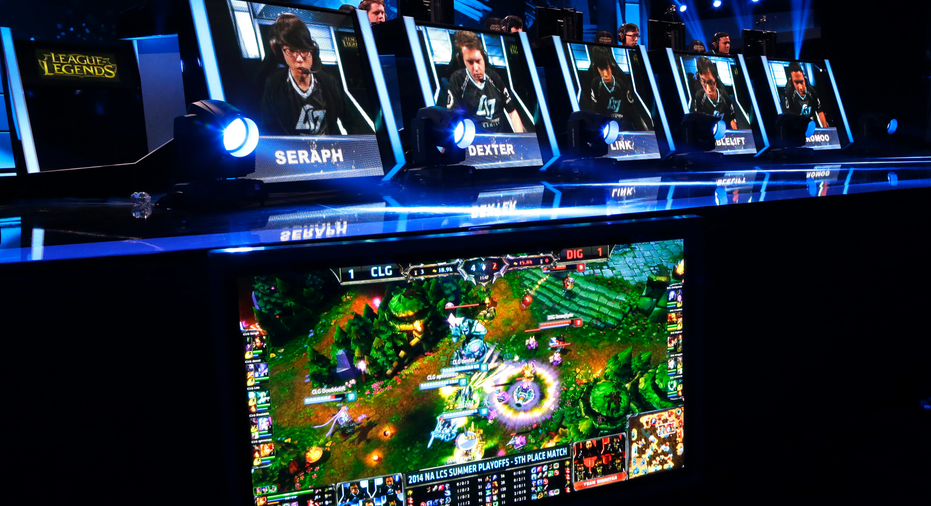Despite sexism claims, Riot Games lands Mastercard deal

NEW YORK – Esports giant Riot Games is adding its first global sponsor, even as the company behind League of Legends contends with backlash over claims it has fostered a sexist culture.
Riot announced Wednesday that Mastercard has signed on to be the first global advertising partner for League of Legends, the world's most-watched esport. It's a crucial step for Riot in a year when competitors like Overwatch and Fortnite have grabbed a bigger share of the esports pie. It also comes roughly a month after the company came under fire for its treatment of women employees.
Kotaku published a story Aug. 7 detailing a sexist culture at Riot Games that included women being passed over for promotions, unwanted sexual advances and men questioning women about the legitimacy of their video game fandom. Other former employees have since come forward with similar claims, troubling some in an esports community that was grappling with sexism long before the #MeToo movement set off a national reckoning.
Riot published a statement on its website later that month apologizing to fans and employees and detailing plans to improve the company's culture. It has formed a team to address diversity and inclusion, and recently brought in Frances Frei, a Harvard Business School professor who has also worked with Uber to improve inclusivity. It plans to evaluate its "core cultural tenets," investigative process and recruiting.
Mastercard is encouraged by what Riot has outlined, enough to move forward with a partnership two years in the making. But Mastercard Chief Marketing and Communications Officer Raja Rajamannar said he'll be monitoring Riot's efforts and won't hesitate to cut ties if the company culture doesn't improve.
"For us it's very simple," Rajamannar told The Associated Press. "It's not just Riot. Any partner that we work with, if there are these fundamental, ethical issues that come about, we won't hesitate walking away."
Rajamannar said he spoke frankly about concerns over Riot's culture during negotiations with Naz Aletaha, head of esports partnerships at Riot, and she convinced him Riot was making an earnest effort to improve its inclusivity.
"Things like sexism and all that stuff, we have zero tolerance for it, not just within our own company but with the partners that we work with," he said. "So we had open conversations with Riot and said how are you planning to address these things? These concepts that are bad. They stated both to us as to the public of the steps they're trying to take, how they are focused, etc. That gives us comfort. These guys are serious about it and they will focus on trying to get this stuff done the right way."
Aletaha has been with Riot for nearly seven years and believes the company is "very dedicated to righting the ship."
"I personally did not experience the things that I read in that article," she told The Associated Press. "However, as a woman in this space, I was really saddened and disappointed that my female colleagues didn't share some of the same experience that I had. But I'm very optimistic about the future and I have total faith that Riot will transform in the long run."
The multiyear partnership with Mastercard is a big deal for League of Legends. The game has more than 100 million global players and drew over 80 million viewers for its 2017 world championships, but its competitors have had a strong year. The Overwatch League debuted with global ad partners in HP, Intel and T-Mobile, then capped its season by broadcasting its championship match live on ESPN in prime time, a first for esports on the traditional sports channel. Meanwhile, Fortnite reached 125 million players in its first year and is quickly building up its own esport structure.
Aletaha said the partnership "validates" Riot's space in the esport ecosystem.
It's also a first step into the space for Mastercard, which spent years toeing the water before making the leap with League of Legends. The content of the multiplayer online battle arena video game was a swaying factor. Rajamannar said the company had concerns about excessive violence in other titles, something that could hinder the push to get esports into the Olympics .
"It's more fantasy based," Rajamannar said of League of Legends. "More strategy, team spirit and sportsmanship. It's different than just killing and shooting and the gore, blood spilling, it's not that kind of a thing. So it fit in very well. In terms of the character that it has got, fits much better with the way we wanted to go."
___
Follow Jake Seiner: https://twitter.com/jake_seiner
___
More AP sports: https://apnews.com/tag/apf-sports and https://twitter.com/AP_Sports



















